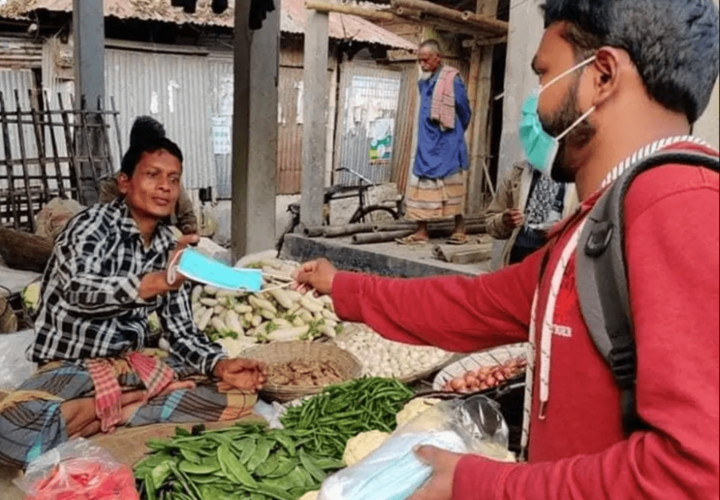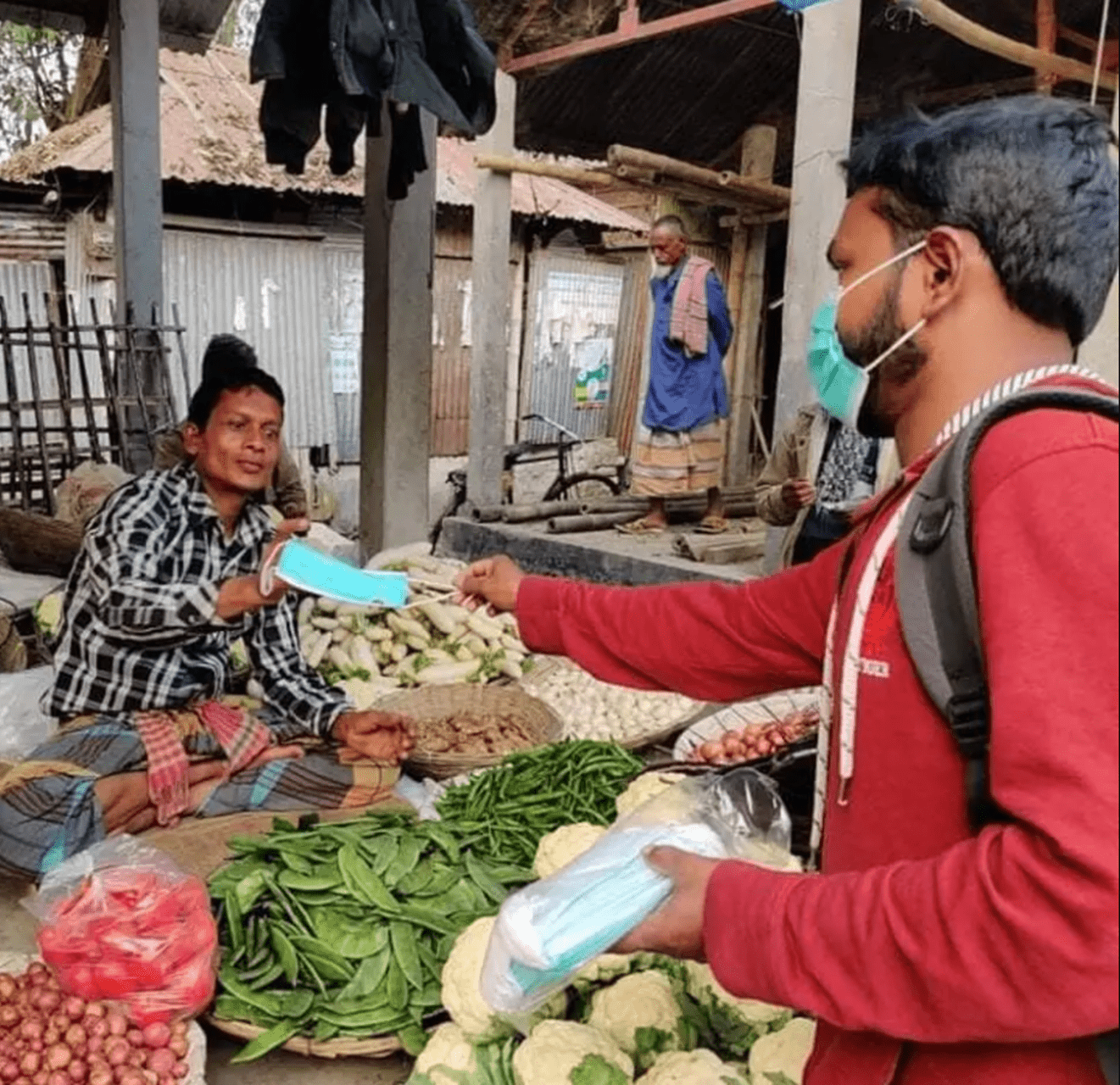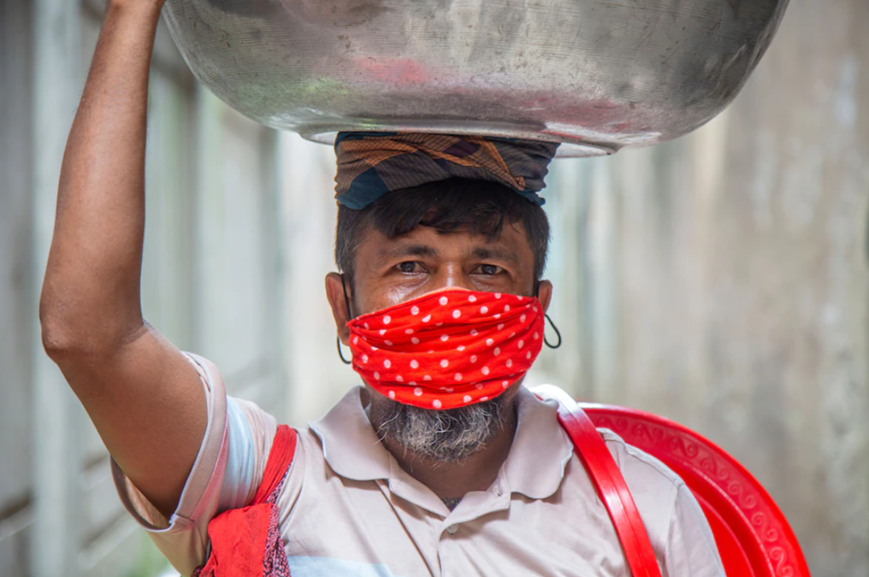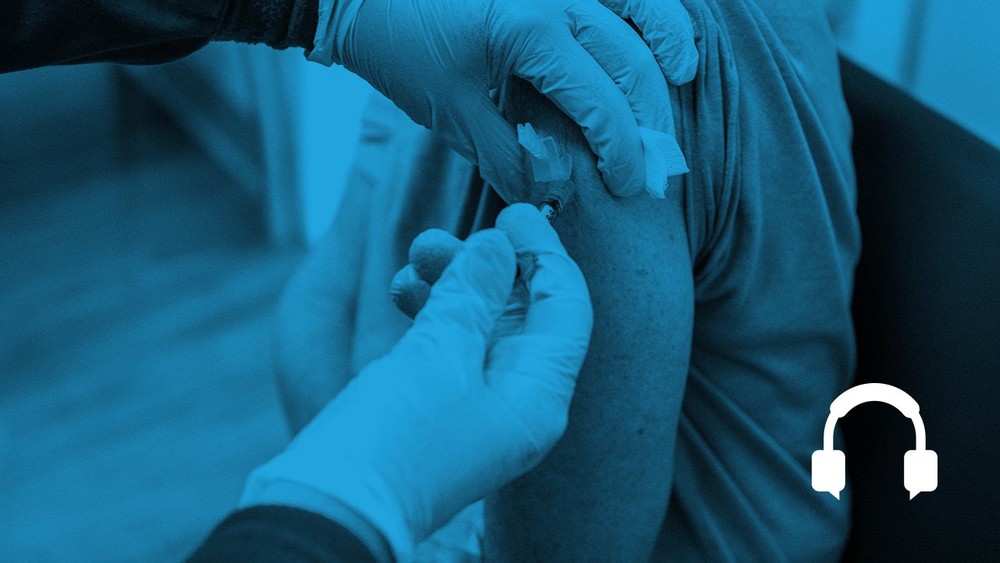Largest study on masks and Covid-19 demonstrates their effectiveness in the real world

Testing the NORM program for reducing Covid-19 infections
While guidance and official policy on masking has evolved over the course of the pandemic, laboratory results have long shown the efficacy of face masks in blocking Covid-19 virus particles. However, until now there has been no rigorous study on the effects of real-world mask usage. In the world’s first large-scale randomized controlled trial on masking and Covid-19, EGC affiliate Mushfiq Mobarak and coauthors from Innovations for Poverty Action and other organizations demonstrate that getting people to wear masks reduces community infection. Heralded by The Atlantic as the “most important research done during the pandemic outside of the vaccine clinical trials,” the team’s study involved nearly 350,000 people in 600 villages across Bangladesh and implemented a four-part intervention in the experimental villages.

Photo courtesy Innovations for Poverty Action (IPA).
The program consisted of no-cost free mask distribution, offering information on mask-wearing, reinforcement in-person and in public, and modeling and endorsement by trusted public leaders (NORM). With clear evidence that this cocktail of interventions can increase community-wide mask-wearing rate persistently, and that in turn decreases the incidence of Covid-19 infection, the NORM model is currently being scaled up to reach over 100 million people in South Asia and Latin America.
Update: WHO Cites Yale SOM Research in New Mask Guidelines, January 2022
A new publication from the World Health Organization providing updated recommendations for mask use in community settings cites a groundbreaking study co-authored by Mushfiq Mobarak. Read more on the Yale School of Management website.
From Research to Scale: The Story of the NORM Model
NORM interventions increased mask usage threefold, from the control group baseline of 13% to 42% in intervention villages.
The team also found that surgical masks were more effective than cloth masks. In villages where surgical masks were distributed there was a 12% reduction in Covid-19 symptoms, as opposed to a 5% decline in villages using cloth masks.
Blood tests showed the overall reduction in symptomatic infection to be 9%, with the most vulnerable group (ages 60+) seeing a decrease of 35% for those wearing surgical masks.
With lagging global vaccine distribution and the Delta variant’s increased transmissibility, these results prove the importance of wearing masks and imply that greater masking could lead to even greater infection prevention.
NORM Video
Professor Mushfiq Mobarak discusses NORM for Yale Insights

Washington Post: "We conducted the largest study on masks and covid-19: They work"
Authors Ahmed Mushfiq Mobarak, Ashley Styczynski and Heidi McAnnally-Linz write on NORM in Washington Post.

The Atlantic: "The Masks Were Working All Along"
Derek Thompson of The Atlantic wrote about the NORM program.

The Economist: "Real-world evidence shows face masks reduce covid-19’s spread"
The Economist's "Graphic detail" discussed evidence from the NORM program.

Podcast - Babbage: Booster shot
The Economist's Babbage podcast discussed the NORM program's findings and featured co-author Laura Kwong of the University of California, Berkeley.

NPR: "A Study In Bangladesh Tripled The Rate Of Mask-Wearing. Can It Help In The U.S.?"
NPR's Adela Wu wrote on the NORM program's findings.

Research summary by Shawn Thacker